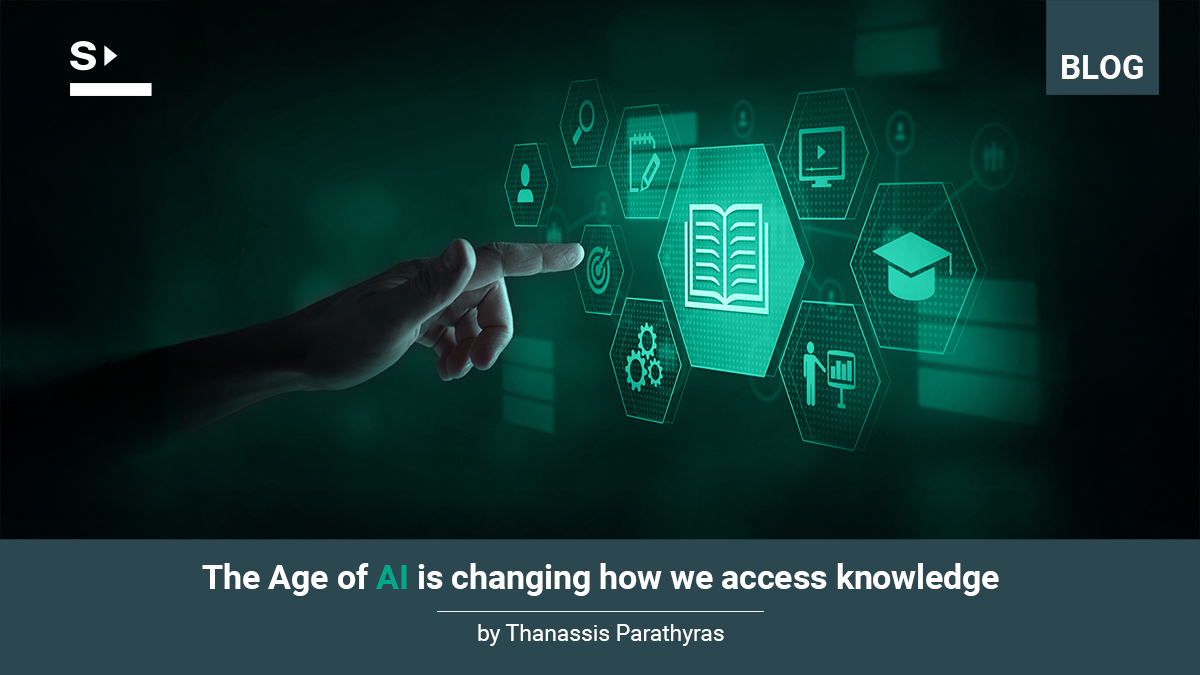The Age of AI is changing how we access knowledge
The internet changed the world by giving us access to information. Now, AI is quietly shifting the ground beneath us again. We’re stepping into a new era where knowledge isn’t just scattered across websites and forums, but compressed into smart systems that can chat, reason, and respond like a knowledgeable friend.

This shift isn’t just technological. It’s deeply human. And it’s happening fast.
From Searching to Conversing
Remember how we used to research? Open a dozen browser tabs, scan articles, compare sources. Today, with AI systems like ChatGPT, Claude, or Gemini, we just ask a question and get a clear, personalized answer.
This is a big deal. It means anyone with internet access, regardless of background, education, or language, can reach knowledge once reserved for experts or expensive institutions. A farmer in Kenya can get agricultural insights. A student in Bangladesh can understand advanced physics. A parent anywhere can get reliable help with homework.
But there’s a trade-off. We often don’t see where the answers come from. AI gives us results, but not the sources. What we gain in speed and simplicity, we may lose in transparency and the ability to verify or compare viewpoints.
The New Gatekeepers of Knowledge
The internet decentralized knowledge. Anyone could start a blog, share an idea, or join a conversation. That beautiful messiness was part of what made it revolutionary.
AI is doing something different. It’s gathering all that scattered knowledge and funneling it through a few powerful systems. Whether it’s OpenAI’s GPT models, Google’s Gemini, Anthropic’s Claude, or open-source models like Meta’s Llama, Mistral’s models, and Falcon, we’re seeing knowledge pass through fewer and more centralized channels.
Even open-source models, while transparent in code, concentrate power in those who can afford the computing resources to train and run them. Organizations like Meta, Mistral AI, the Technology Innovation Institute (behind Falcon), and research groups at universities now shape how knowledge is processed, filtered, and delivered.
This raises important questions. Who decides what these systems learn? Which perspectives get included or excluded? And what happens to all the individual voices and viewpoints that used to shape our understanding directly?
The Efficiency Race
Right now, the most common use of AI is to do more with less. Write emails faster, generate code, automate support. That’s a natural first step. We always look for ways to work smarter.
But AI isn’t just another productivity tool. These systems can reason, create, and increasingly make decisions. If we only use them to cut costs or replace people, we’re not just missing the bigger potential. We’re risking a future where benefits are concentrated in the hands of the few.
Racing Toward Tomorrow
The speed of AI progress is breathtaking. GPT-3 stunned us in 2020. GPT-4 arrived in 2023 with major improvements. Now, we have models that can see images, generate video, and perform complex reasoning. Similar breakthroughs are happening with Claude, Gemini, and open models like Llama 3, Mixtral, and other cutting-edge systems.
Most experts believe the pace will continue or even accelerate. That’s exciting, but also sobering. It means we have less time to adapt our schools, workplaces, and institutions to a world where AI is part of everyday life.
What About Everyone Else?
While tech companies race ahead, billions of people are just beginning to encounter AI. This gap between those with access to cutting-edge tools and those without could become a new form of inequality.
There’s hope. Open-source models are making AI more accessible to developers and innovators globally. Projects like Hugging Face are democratizing access to AI tools. But access to infrastructure, training, and digital literacy remains uneven across different regions and communities.
Staying Human in an AI World
As this transformation unfolds, we need to ask ourselves important questions.
Who benefits? Are AI systems improving life for everyone, or just those already advantaged?
Whose knowledge counts? Are diverse perspectives included, or are we homogenizing thought?
What are we losing? In gaining speed and convenience, are we giving up critical thinking, creativity, or nuance?
Who’s in control? As AI becomes more powerful, are we shaping it for public good or for private gain?
These aren’t technical questions. They’re human ones. And they need answers from all of us, not just engineers or executives.
The Path Forward
We’re at a pivotal moment. AI is reshaping how we learn, work, and relate to the world. This change could democratize knowledge and opportunity in ways we’ve never seen before, but only if we build intentionally.
We can create AI that enhances human creativity instead of replacing it. That reflects diverse voices instead of flattening them. That spreads benefits broadly instead of concentrating them narrowly.
The question isn’t whether AI will change everything. It already is.
The real question is this. Will we shape that change to serve everyone, or just a few?
